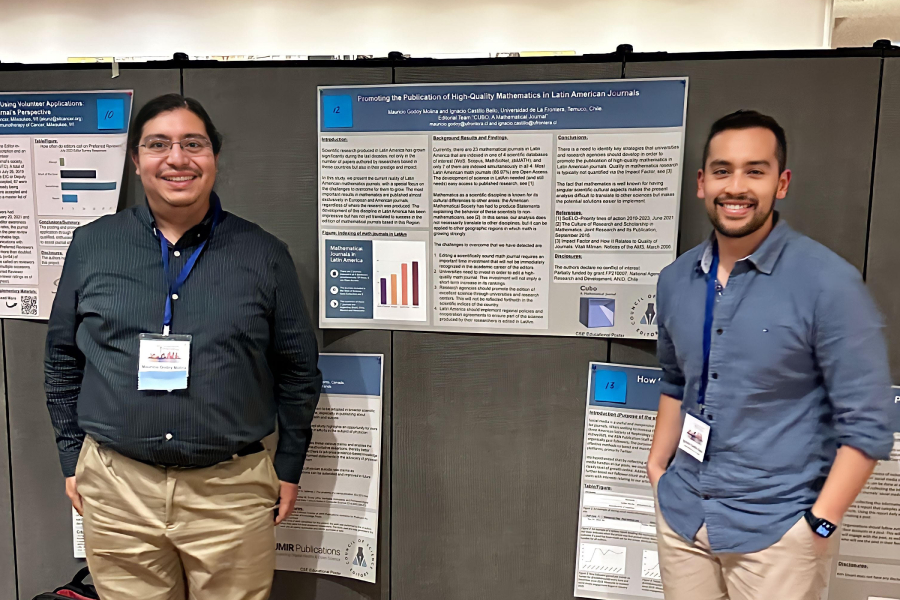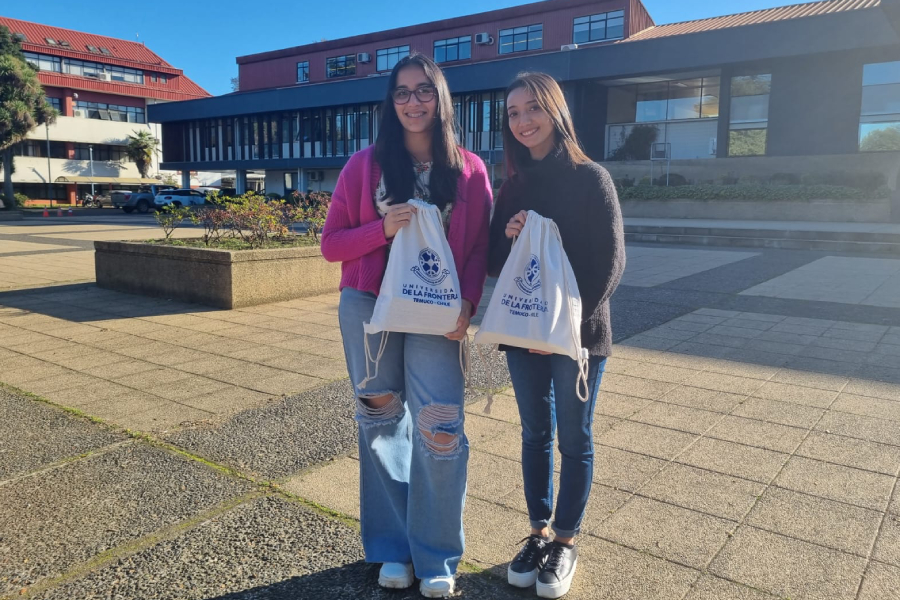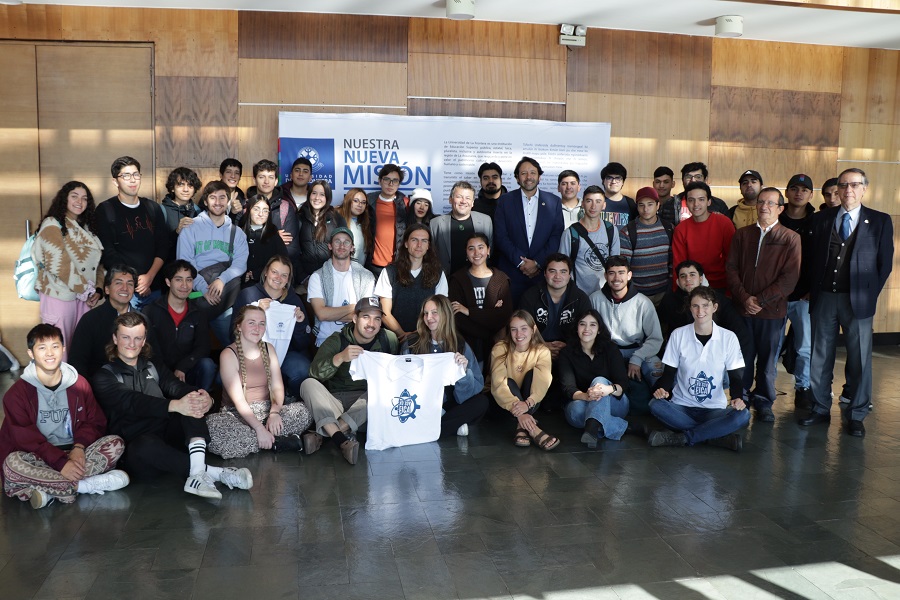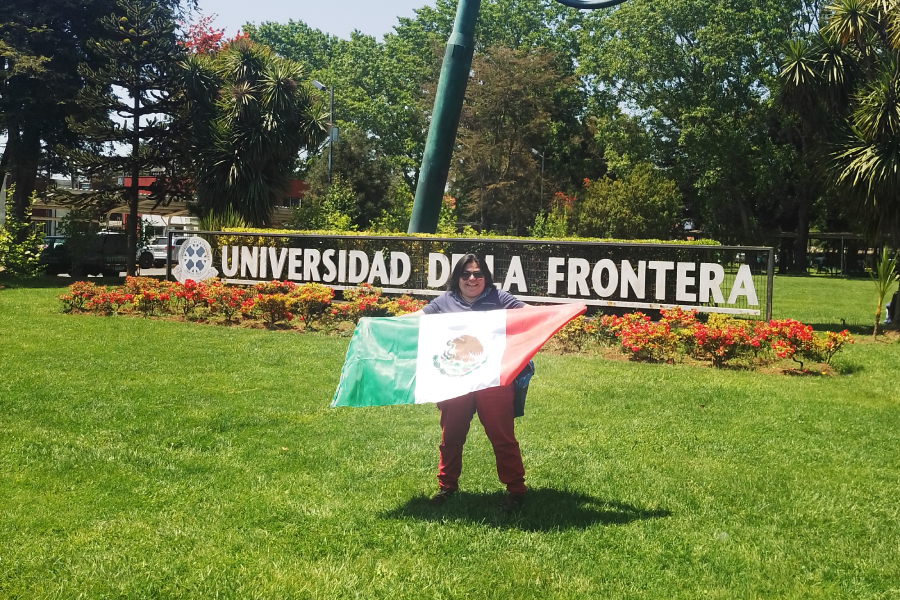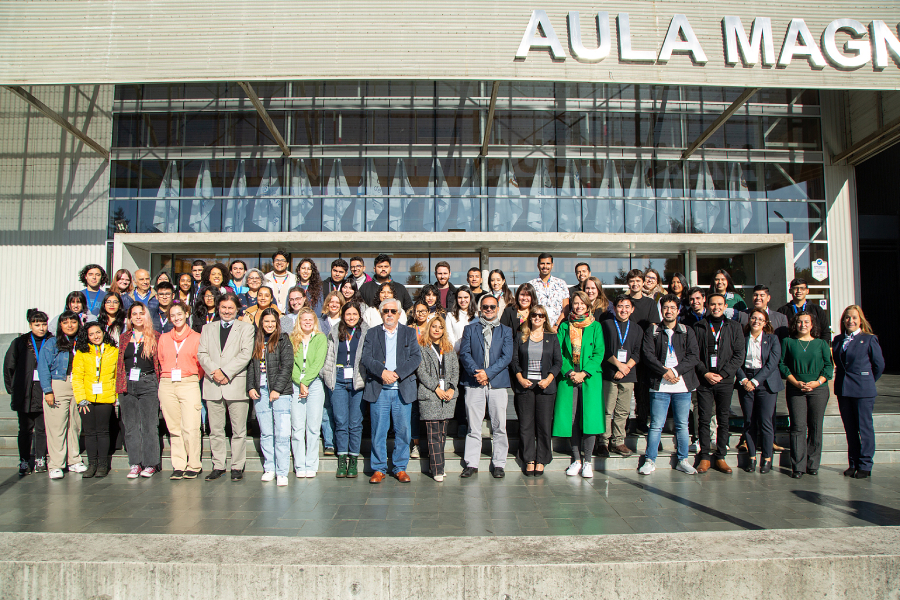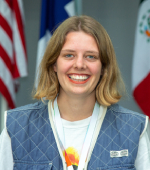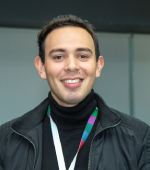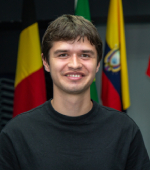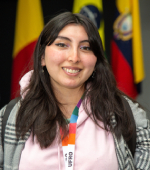|
This year, the traditional annual meeting took place in Toronto, Canada, and the journal “CUBO, A Mathematical Journal” of UFRO participated for the first time, with the managing editor Dr. Mauricio Godoy Molina, and Ignacio Castillo Bello, who is in charge of editorial production. |
It was the first time that part of the team of the journal “CUBO, A Mathematical Journal” of Universidad de La Frontera (UFRO) participated in the Council of Science Editors (CSE) Annual Meeting, which took place in Toronto, Canada, this year. Each year, editors-in-chief, associate and executive editors, analysts and editorial assistants of well-known scientific journals from different parts of the world come together at this meeting to address the current state of scientific publishing and the specific challenges of this important task, in order to promote a responsible and effective dissemination of science. The representatives of UFRO in this meeting were the managing editor Dr. Mauricio Godoy Molina, and Ignacio Castillo Bello, who is in charge of editorial production. They both participated within the project FP210007 “Optimisation of the editorial process and improvement of the international visibility of the journals CUBO, A Mathematical Journal and Perspectivas de la Comunicación”, financed by the Chilean National Agency for Research and Development (ANID). “Some of the objectives that motivated us to participate in this meeting were to share experiences with professional editors from some of the world’s most prestigious scientific journals in different fields of knowledge, and to contextualise the work of the CUBO team with respect to the latest trends and standards established and developed by the world’s leading scientific editorial teams,” Dr. Godoy explained. As part of their participation, they also presented a poster with a preliminary analysis of the positioning of publications of original mathematical research in journals based in Latin America, with special emphasis on quality standards and international indexation. It is worth mentioning that the mathematical journal CUBO is part of the prestigious Web of Science (WoS) since 2022 and of the international database Scopus since 2020, two milestones that reflect the important development of this journal of UFRO. According to the editors of CUBO and their presentation at the meeting, this journal is one of only seven Latin American mathematical journals that meets all international quality requirements for these databases. “In addition, we had a collaborative and strategic work meeting with Javad Mashreghi, a full professor at Université Laval in Quebec, Canada, editor-in-chief of the Canadian Mathematical Bulletin and former president of the Canadian Mathematical Society,” added Dr. Mauricio Godoy, confirming that this outstanding researcher will also be part of the international editorial team of the journal CUBO. “This collaborative work will definitely be crucial to position our journal even more in the field of mathematics at the international level.” The engineer Ignacio Castillo was equally enthusiastic about their participation, the new knowledge acquired and the new contacts. “This meeting, which brings together editors and publishers from different fields of science, motivates us to further strengthen our journal, and to give it greater visibility. The exchange of experiences was very enriching and helps us to make our work even more professional.” In this context, the journal makes significant continuous progress in its international consolidation, an effort that started in 1985 and has developed over the years, thanks to the work of a team of passionate mathematicians of the Department of Mathematics and Statistics of the Faculty of Engineering and Science at Universidad de La Frontera. Written by: Daphne Bormann Parada |
|
Thanks to the MITACS-Canada programme and its agreement with the universities of CRUCH, Catalina Valdebenito Gallardo and Martina Campos Torres are able to spend 12 weeks as research assistants for different research projects at Canadian universities, under the supervision of outstanding researchers. |
With great joy, Universidad de La Frontera (UFRO) received the great news that two of the seven scholarships of the MITACS Globalink Research Internship (GRI) programme in Canada go to the UFRO undergraduate students Catalina Valdebenito Gallardo of the Law programme and Martina Campos Torres of the programme in Pedagogy in History, Geography and Civic Education. This scholarship gives them the opportunity to spend 12 weeks (between May and October) as research assistants at Canadian universities. Catalina Valdebenito Gallardo, a student of the Law programme of UFRO, will use this scholarship to collaborate in the project “Embracing Indigenous Rights via the UN Declaration on the Rights of Indigenous People, AMDRIP and International Trade Agreements” of the academic Bradford Morse, at Thompson Rivers University in Kamloops (British Columbia). “I will investigate the progress of the rights of indigenous people in each country and the compliance with the corresponding treaties. It is a great challenge, since this will be the continuation of a project which the same professor started with another exchange student last year,” she explained. At the same time, Martina Campos Torres of the Pedagogy in History, Geography and Civic Education programme of UFRO will work together with the academic Janet Okoko of University of Saskatchewan in Saskatoon (Saskatchewan) on the project “Strengthening Instructional Leadership Capacity for Practitioner-Oriented and Technology-Mediated Educational Research to Support Student Learning”. The students commented that they are very grateful for all the support they received in this process by the university and especially by those who are part of their study programmes. “My professors and the director of the programme were really helpful, so I was able to finish the semester earlier, in order to start my stay without worries. I wanted to apply for this scholarship, because it is rather uncommon to find one that is dedicated to research, which is my field of interest for my future graduate studies. I wanted to take this opportunity to learn how to do research, since we learn about it in theory, but I think that it will be quite different to apply this knowledge in practice”, Martina Campos said. For Claudia Villagrán, the person in charge of outgoing mobility at the International Affairs Office, this opportunity is very important for the whole university community of UFRO, since it directly contributes to UFROs internationalisation process. In this context, she pointed out: “We want to support our students in the process of application for existing scholarships, funding and mobility programmes, because we are convinced that, especially in this case, it is a tremendous opportunity for both of them. They both received a lot of support by the university and especially by their programme directors, who fully supported them in this process previous to their stays”. It is also worth mentioning that the scholarship of the Globalink Research Internship programme is worth about 12,000 Canadian Dollars and financed by MITACS and the universities of the Council of Rectors of Chilean Universities (CRUCH). It provides real opportunities of growth regarding research and innovation, and allows students to spend three months supporting scientific research in the fields of science, engineering, mathematics, humanities and social sciences.
Written and translated by: UFRO Communications Office
|
|
A delegation of ten architecture students and four academics from Auckland University of Technology in New Zealand visited Universidad de La Frontera within the framework of a cooperation agreement with the Faculty of Engineering and Science. |
During their stay in Chile, the delegation of academics and students of the Bachelor of Architecture and Future Environments of Auckland University of Technology (AUT) in New Zealand visited the Andrés Bello Campus and Pucon Campus of Universidad de La Frontera (UFRO) and got to know some of the beautiful landscapes of the La Araucanía region. The delegation, consisting of Dr. Yvonne Chan, the Director of Engagement of the Faculty of Design and Creative Technologies; Dr. Charles Walker, the Head of the School of Future Environments; Dr. Ricardo Chacón Mestre, the International Partnerships Manager of the Faculty of Design and Creative Technologies; Tessa Forde, a teaching assistant and PhD student; and ten students of the Bachelor of Architecture and Future Environments, visited the La Araucanía region’s lake area and the city of Temuco, getting an idea of the intercultural aspects that have defined the local and part of the national architecture. Some of the points addressed in the meetings with university authorities of UFRO, such as the Vice-rector for Research and Graduate Studies, Dr. Rodrigo Navia Diez, and the Dean of the Faculty of Engineering and Science, Dr. Jorge Farías Avendaño, were the collaboration in research, academic and student mobility in the areas of undergraduate and graduate studies, and the project proposal for a new Architecture study programme at UFRO. At the same time, the students had the chance to interact with their peers of the Construction Engineering and Civil Engineering programmes at UFRO. These encounters made their five-day visit to the La Araucanía Region even more enriching. In this context, it is worth mentioning that this academic trip, financed by the Prime Minister’s Scholarships for Latin America (PMSLA), took place within the framework of the AUT “Study Tour” course, which allows the students from New Zealand to visit different cities in Latin America. In the case of this group, they selected Valparaiso in the centre of Chile, visiting the university Pontificia Universidad Católica de Valparaíso, and Temuco in the south of Chile, visiting Universidad de La Frontera through its Faculty of Engineering and Science. At the end of their visit, the students of AUT presented the conclusions of their stay in Chile and the projects they are currently working on in the fields of social housing, urban landscaping, incorporation of indigenous values and identity associated with public spaces, among others. IMPRESSIONS “We are very happy about this visit, which is part of a work plan that we are implementing in a very proactive and reliable way, to advance, among others, in the development of an architecture undergraduate programme at our faculty, and in matters of student mobility and issues related to interculturality. Visits like these allow us to complement our views and are a direct benefit for the students of both universities,” explained the Dean Dr. Jorge Farías. The delegation from AUT also had a very positive impression of the work developed at UFRO during their stay. “New Zealand and the La Araucanía region have a lot of things in common, but there are also a lot of differences, what motivates us even more to work together, since it will benefit both universities. Interculturality, for example, is one of the topics that truly connects both of our countries,” pointed out Dr. Ricardo Chacón. “We are making progress regarding the partnerships with these two universities and we are excited to see that there are so many opportunities for creativity in Chile, with the additional element of indigenous values. In our architecture study programme, the Maori culture and others are very present and UFRO, in its project proposal for an architecture study programme, could add the worldview of its indigenous peoples, too. That is one of the aspects that motivates us for this collaboration, as well as the possibility of carrying out joint research,” added Dr. Yvonne Chan. The student Cleo Arminglat from New Zealand was also very happy about this opportunity. “We really like the La Araucanía region, because it is very similar to New Zealand, even in its volcanic history. It was very interesting to talk to other students and to share our experiences of studying in different countries. I also improved my Spanish and learned a lot about engineering and architecture in Chile,” she explained. The visit and activities were organised by the Internationalisation Unit of the Faculty of Engineering and Science of UFRO, through Susana Candia Palma, within the International Cooperation Agreement, which primarily focuses on the fields of undergraduate and graduate education, research, interculturality, gender and outreach. Written by: Daphne Bormann Parada |
|
Karla Ávila Merino carried out her Master’s studies at Autonomous University of Puebla in Mexico and came to Chile to study three subjects of the Master of Business Administration at Universidad de La Frontera. |
One of the objectives of Universidad de La Frontera (UFRO) is to promote the undergraduate and graduate mobility, being convinced that national and international student mobility opens great learning opportunities and personal growth. In this context, Karla Ávila Merino carried out her Master’s studies at Autonomous University of Puebla (BUAP) in Mexico, what allowed her to come to Chile for three months and to take three subjects of the Master of Business Administration (MBA) of the Faculty of Law and Business at UFRO, thanks to a mobility and cooperation agreement between both universities. For the welcome ceremony for the new graduate students 2023, the Master of Business Administration asked the Mexican student Karla Ávila to share her impressions about her stay in Chile and the training process at UFRO. MOBILITY AT UFRO The idea of carrying out her Master’s studies in Chile started about ten years ago. “I tried more than three times to go, but without success. However, after finishing my studies at BUAP in Mexico, I finally had the chance to go to Chile and to take three subjects at Universidad de La Frontera,” she explained. Karla pointed out that, among the possible universities for her mobility, UFRO was the only one that met all the requirements, which is why she chose to come to UFRO. According to Karla, the choice of the university consisted of a comprehensive search, in which she tried to find a program with similar standards to her study programme at BUAP in Mexico. Therefore, she made the corresponding consultations and compared different options, among which UFRO was the one that met all her requirements, since it had the corresponding mobility agreement, the Master’s programme and similar bases. “My stay at UFRO allowed me to broaden my horizons and to make new experiences. I would definitely recommend others to make use of mobility opportunities at UFRO, in order to live such a great experience in the beautiful La Araucanía Region,” she said.
Written by: Carlos Sáez Figueroa |
|
More than 30 students arrived at UFRO this semester, what confirms the strong international partnerships of UFRO and the perceived high academic quality. |
Universidad de La Frontera (UFRO) continues its path of internationalisation and welcomes through the International Affairs Office the foreign and national students who join the faculties and programmes of the university this semester. The deputy rector, Dr. Rodrigo Navia Diez, was very pleased to receive the group of 30 students, who came to this regional and public university for professional, but also cultural and personal growth. “The academic part is only one part of the challenge. There is also the personal development, when you are part of a different local and university community, with all its environmental, sportive and cultural opportunities,” Navia said. INTERNATIONALISATION AT THE UNDERGRADUATE LEVEL During this first semester of 2023, UFRO receives these students from different European and Latin American countries, such as Argentina, Belgium, Brazil, Colombia, Ecuador, the United States, Spain, Finland, Italy and Mexico, who will be part of the different study programs at the six faculties of Universidad de La Frontera. Apart from the cooperation and mobility agreements between UFRO and universities in different parts of the world, which allow the mobility of these students, some of them also benefit from different scholarships, for example through the exchange program of the International Federation of Medical Students Associations (IFMSA) or the Fulbright Scholarship Program. One of the students from Universidad Mariana in Colombia came to UFRO to participate in the Interdisciplinary Rural Internship Program of the UFRO Faculty of Medicine, and to carry out an internship in the rural areas of Melipeuco in the La Araucanía Region. NATIONAL MOBILITY In terms of national mobility, two students from Universidad de Antofagasta in the north of Chile will spend this semester at the Faculty of Engineering and Science and a student from Universidad de Los Lagos in the south of Chile will spend a semester at the Faculty of Medicine. IMPRESSIONS
Written and translated by: UFRO Communications Office
|





